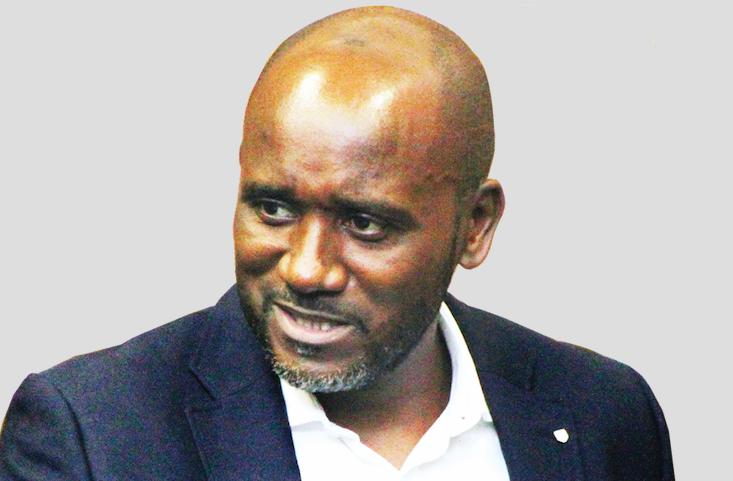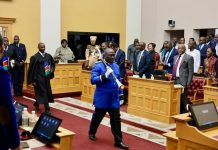Africa-Press – Namibia. SOCIAL media opinions, public gatherings and demonstrations are not a barometer of public interest which a court should consider when deciding whether to grant bail to an arrested person, says judge Herman Oosthuizen in his reasons for his decision to grant bail to Fishrot accused Ricardo Gustavo.
The public interest which a court should consider is contained in Namibia’s constitutional principles – including equality of all persons before the law, and the guarantee of a fair trial within a reasonable time.
A public outcry which goes against these principles deserves no consideration by the country’s courts, Oosthuizen says in his bail ruling reasons, which were released yesterday.
Oosthuizen granted Gustavo (46) bail in an amount of N$800 000 on Wednesday last week. He attached a list of strict conditions to Gustavo’s release from custody.
These include requirements that he should report to the police three times each day, may not leave the premises of the Finkenstein Estate, where he lives east of Windhoek, between 14h00 and 07h00 the next day, would be restricted to the boundaries of his home from 18h00 to 06h00 the next morning, may not have travel documents, may not have contact with his co-accused or state witnesses in his case, and may not go outside a radius of 22 kilometres from the head office of the City of Windhoek.
The judge further directed that the state may at its own cost attach a global positioning system (GPS) tracking device to Gustavo’s wrist or ankle to monitor his movements at all hours. Gustavo was arrested on 27 November 2019 in connection with the Fishrot fishing quotas fraud and corruption case.
In the reasons for his decision, Oosthuizen acknowledges that the charges which Gustavo is facing are serious, that the offences of which he is accused are alleged to have had a negative effect on Namibia’s economy and state resources, and that there is intense public interest surrounding the so-called ‘Fishrot’ scandal.
The judge says in his view, the best summary of public interest is that it is in the interest of the public that Namibia’s constitutional values and laws should be zealously upheld and practised.
Social media opinions and public gatherings and demonstrations are not a measure of public interest which a court should consider, but are an expression of fundamental freedoms of speech and thought, which members of parliament and of the executive arm of the state should take note of when formulating legislation and policies, Oosthuizen says.
He also notes that the seriousness of the offences of which Gustavo is accused, and the likelihood that heavy prison terms would be imposed if he is found guilty, is apparent.
However, he adds, he is not convinced that Gustavo would be found guilty of all or some of the offences he is charged with. In judicial experience, it is not strange that a strong case becomes weaker when properly explained by an accused person during a trial, Oosthuizen remarks in his reasons.
He further says he is convinced that appropriate strict bail conditions would serve the public interest, the proper administration of justice and Namibia’s constitutional values, by allowing Gustavo to be on bail and to be able to properly prepare for his trial, freely consult with his lawyers, take care of his health at his own cost, and take care of the needs of his children and family.
Considering the indictment containing the charges against Gustavo and his co-accused, the prosecution’s list of more than 300 state witnesses, the number of lawyers who would be involved in the matter, and other factors, the Fishrot trial may take two to four years to complete, if not more, in his view, Oosthuizen indicates.
Gustavo is the first of the 10 men charged in the Fishrot case to have successfully applied to be granted bail. Defence lawyer Trevor Brockerhoff represented him during his bail hearing in the Windhoek High Court in November. Deputy prosecutors general Cliff Lutibezi and Ed Marondedze represented the state.
For More News And Analysis About Namibia Follow Africa-Press






